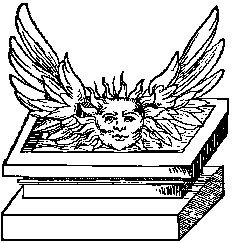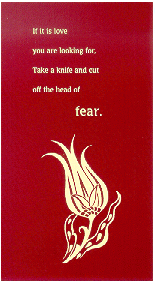a just wine
O wine, you are king, just and good to all.
One cup of you will free a hundred slaves.
My eyes are bright when your sun shines in me.
I escape in you who make me happy.
#1709: From Rumi's Kolliyaat-e Shams-e Tabrizi
Search word: just
I decided to pursue the theme of justice after it was raised recently under feeling rotten. There, Rumi seems to castigate himself for failing to deliver justice to others. Here, he praises the wine that is "just and good to all", that can bring freedom, enlightenment and joy. Certainly, in a literal sense, wine can do all of those things, at least for the short periods while it has its effect on the brain. Indeed, this verse would work quite fine as a drinking song. The one line that jars is the second with its reference to slaves who surely would not have access to literal wine partly because it is an expensive commodity and partly because "slaves of Allah" is one way Muslims characterize themselves and alcohol is prohibited to the Muslim.
No, it is widely accepted by commentators on Rumi that he uses wine as a metaphor: for spiritual ecstasy or for the Sufic practises that lead to that. Those disciplines, images and ideas are available to all, whether Muslim or not, whether rich or poor, slave or slave-owner. It is that universal availability that makes this wine so precisely just.
I prefer to see even the Sufic practises as too literal an interpretation of the wine. For various reasons of circumstance (like poverty, slavery, disability, addiction) many (perhaps most) people do not have access to structured paths of spiritual development. Most people simply live their lives, happy when things are turning out well, sad when not. They are like plants that take advantage of the sunshine and are nourished by the rain. To my mind, Rumi is saying that such people can still be free, enlightened and joyful. It depends whether and how often the wine touches them.
Wine, then, is more simply deity, the divine spirit or spark within each of us. As observers or onlookers we miss the point if we fail to see this divine spark because we're looking for something external or socially agreed on. We project the divine spark onto kings or outstanding citizens. Today we do it with movie stars and other similar celebrities. The great secret of the mystic paths is that this wine is life, everyday life, simply life lived to the full in all its mundane glory and despair, its ups and downs, its heavens and hells. Divinity shines through every living eye, even my own and yours.












